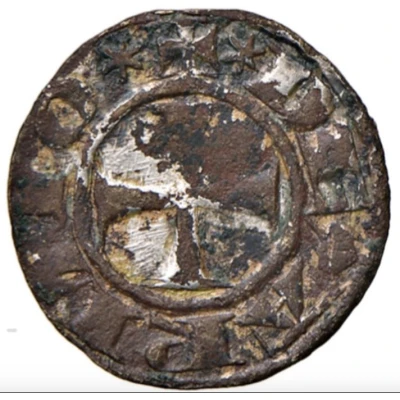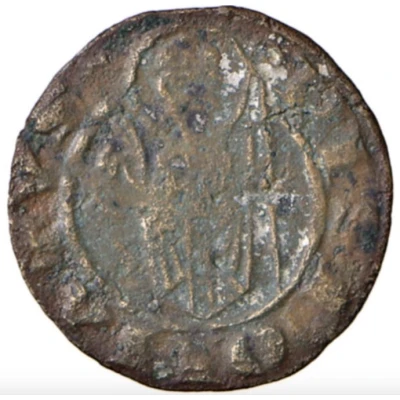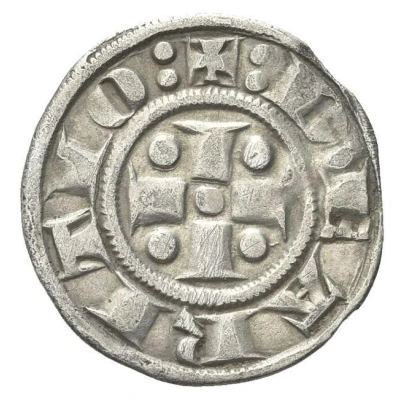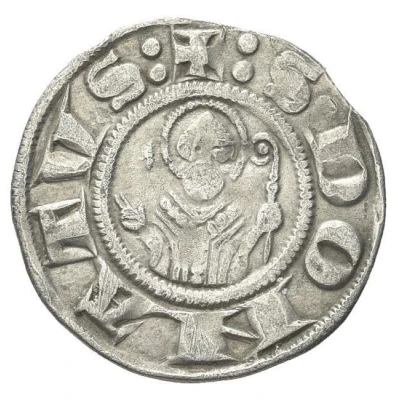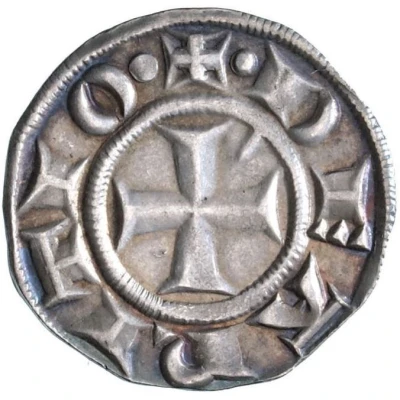
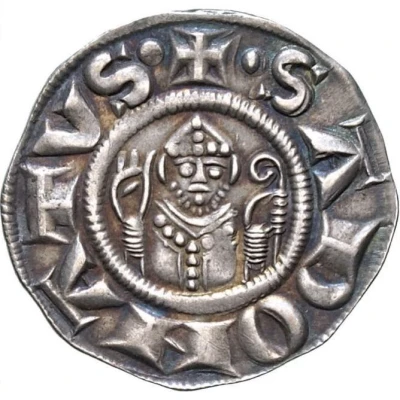

© Numismatica Varesi
1 Grosso ND
| Silver | 1.72 g | 19 mm |
| Issuer | Arezzo (Italian States) |
|---|---|
| Period | Republic (1098-1248) |
| Type | Standard circulation coin |
| Years | 1230-1250 |
| Value | 12 Deniers (1⁄20) |
| Currency | Lira (961-1520) |
| Composition | Silver |
| Weight | 1.72 g |
| Diameter | 19 mm |
| Shape | Round (irregular) |
| Technique | Hammered |
| Demonetized | Yes |
| Updated | 2024-10-05 |
| Numista | N#226066 |
|---|---|
| Rarity index | 97% |
Reverse
Cross pattée.
Script: Latin
Lettering: ✠ • S • A • DONATVS •
Unabridged legend: Sanctus Donatus.
Translation: ...of Arezzo
Comment
According to Vanni the lack of a nimbus in the saint’s image, the bust’s style and weight place this coin at the end of the first grosso series (Vanni 1997, p. 31, tipo 1B), issued from the early 1240s (first written evidence dating 1243).In Nassar's more recent study of this type (2018), he classes the subtypes and their evolution as follows:
Groups A - C (corresponding to MIR 2, and CNI 1-7). Main photos.
Obverse: Saint Donato does not have a halo, and is rendered simply
Reverse: Small spike from the inner circle in quadrant 2 (upper right)
Group D (corresponding to CNI 8).
Similar to Groups A-C but no spike in the circle reverse.
Group E (corresponding to MIR 3 and CNI 9-10)
Obverse: Saint Donato is nimbate and wears a peaked (pointed) miter
Reverse: A small dot close to the center of the cross in each quadrant
© Numismatica Varesi
Groups F-G (correspond to MIR 5, CNI 11-12)
Obverse: Saint Donatus is nimbate. Legend ✠ · S' · DONATVS ·
© Numismatica Varesi
Interesting fact
One interesting fact about the 1 Grosso ND (1230-1250) from Arezzo (Italian States) made of Silver weighing 1.72g is that it was minted during the reign of Frederick II, who was the Holy Roman Emperor and King of Sicily. He was known for his military conquests and his attempts to centralize power, which led to conflicts with the Pope and the Italian city-states. Despite these challenges, he was able to issue a number of coins, including the 1 Grosso, which was used widely in trade and commerce throughout Italy during his reign.
